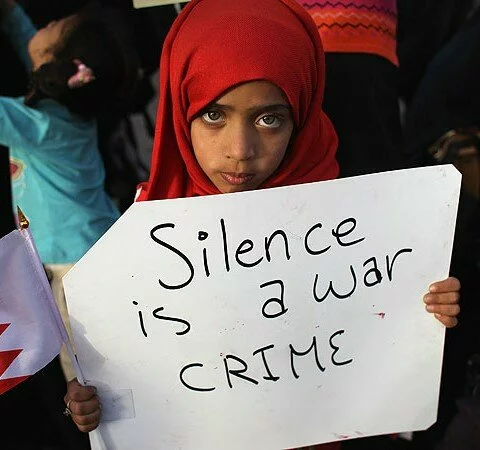Women struggle for unity in Bahrain

Women in Bahrain have launched new initiatives to tackle sectarian tensions that emerged as fallout from widespread unrest that has swept the country since February.
The tiny island with oil incomes representing around 70 per cent of government revenues was known for years for its peaceful coexistence between its majority Shia and minority Sunni populations.
The majority of those who participated in demonstrations before the declaration of the three-month state of emergency in March were Shia. Sunnis were mainly involved in pro-government rallies.
The result: long-time friends have turned enemies. Each sect has issued a list of shops that should be boycotted because Bahrainis of the opposite sect own them. Those lists are circulated through leaflets, email and e-forums.
‘Women for Bahrain’ is an initiative that is working to unite Bahrainis once again. “Through the group we are trying to tell people that religion is for god, and the country is for all of us, and how sectarianism could lead to serious complications,” says Fawziya Al Khaja an activist and media committee member.
The recently formed women’s group, with members coming from different walks of life, stands against powers in Bahrain who back sectarian tension to promote their own agendas, she says.
The group commenced its activities in March, calling for love and tolerance through Internet social networks. A unity petition was launched.
“The group’s activities wouldn’t have a timeframe and would continue as long as we are needed, we want from the people of Bahrain to respect and accept each other regardless of their differences and to share the love of their country,” Al Khaja says.
The group is also dedicated to spreading the principles of wisdom, justice and freedom to protect the dignity of people. “Through the group we are telling society and the world that the role of Bahraini women shouldn’t be overlooked, as without them the structure of family and community get affected,” she explains.
Internet social networks and Blackberry messenger are now a war zone for Shiite and Sunni youth who pass hate messages back and forth constantly. Those messages criticise the differences among two sects of the same religion, says Mariam Al Ruwaee, the president of the Bahrain Women’s Union.
“Mixed marriages felt the heat of tensions most, since people could shun sectarianism inside their homes, while we are confronting them insides our bedrooms,” says Fathiya Ibrahim, a Shia.
Talking about her relationship with her Sunni husband, she said: “We aren’t at ease as we share different opinions. It wasn’t like that before but situations have dragged us to this level.”
Sunni academic, Haisa Al Junaid who is married to a Shia, has so far attracted 40 women to stand together against what could threaten the stability of their families and the safety of their children – fights that turn violent at schools.
“We want to take legal actions, including filing court cases against well-known figures promoting sectarianism,” Haisa announced during a recent launch of the initiative at her home. “Through the group we want also to highlight that we are in pain from disunity in the community and disturbance of relations.”

Submit a Comment